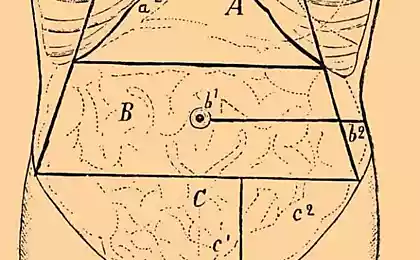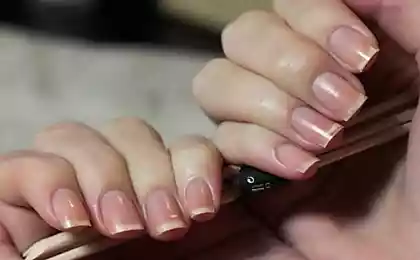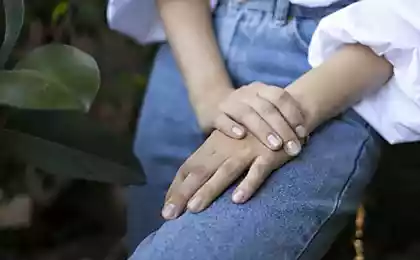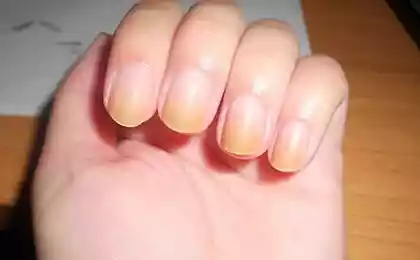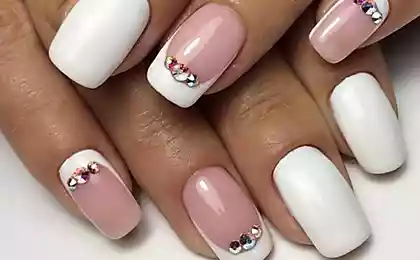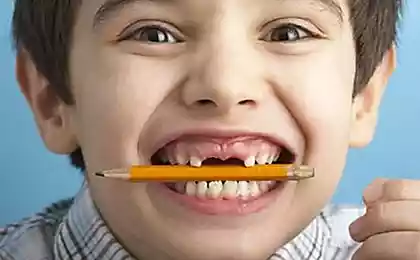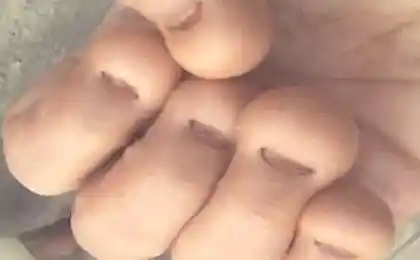163
Sucking fingers, biting nails. Psychotherapist reasoning
Children and adults suck their fingers, bite and break their nails. Adults are inventive in their reactions and attempts (and more often torture) to “eradicate” this habit. Children are inventive and beautiful in their ability to adapt and seek healing.
Unfortunately, there are no universal recipes. I will offer several directions for thinking and searching. There will be a lot - but practical. The topic is multifaceted and multifaceted.
317.78
1. Sucking fingers (corners of clothing, in the sequel - smoking, etc.), biting nails, breaking off nails - symptoms that at first glance look similar, but have, as a rule, a different cause.
2. This is not just a “bad habit” – it is neurotic actions, often completely unconscious, not always controlled (especially in children whose volitional centers have not yet been formed). The child does not do this deliberately to annoy the parent.
3. There is a deeper reason behind each such action, and adults are strained, to be honest, not even because of the action itself, but because of the “charge” – uncontrollable and important, which is felt “behind” the action. (Just as parents are strained not by the clutter in a teen's room, but by the teen's inner state, which masks the clutter outside.)
4. Any habit that we've formed, which speaks of existing fixed mechanisms, is a habit of our neural connections. It takes time for it to change. It is necessary to propose and develop an alternative action or reaction.
5. We can't take anything without giving anything in return. That's the basic rule of parenting. If we withdraw ourselves, we leave a grandmother or a nanny instead. Taking away the computer – we offer a meaningful alternative – your emotional presence, a book. If there is no replacement, a new, perhaps more serious and already bodily-somatic symptom will grow in this “emptiness”.
6. The greater our tension, the more demands we have to “do something about it” – the more the child feels “wrong,” the more likely it is to consolidate the symptom or transform it into something else (for example, without commenting on the adequacy of the methods of “parental therapy” – a child who was told that he would tear off his arms and penis with another “catch” for masturbation – finger sucking appeared when the parents threatened to cut off his fingers – enuresis began).
Sucking
We know a lot about the oral phase of development. This is the time when the baby-baby enjoys and develops many bodily devices and mechanisms (for example, when sucking, three nerves with huge zones of “control” are involved at once: the vagus, triple and nasopharyngeal nerve), gets the experience of intimacy, security, trust - thanks to sucking milk from the chest. And just then and as much as he needs. Each child has its own standard, as well as the possibilities of the family system.
This is the “oral” time when the child is implanted in the sense of I Being and My needs can be satisfied by the world. This is the time of attachment formation – the ability to be in close relationships at all, to accept and respond to intimacy. This is a time of building basic trust or mistrust in the world.
Each person has their own needs, lessons and experiences. If the need of the child for various reasons was not satisfied, if at this time there was something traumatic - the child can "satisfy" - to meet this need, choosing "substitutes" - finger, nipple, pencil, cigarette ...
In thumb sucking, we share age:
Children and children after 3 years
Babies who are on mixed feeding, when teething - with the help of sucking the fist and finger compensate for what they lack or anesthetize the process. This is a variant of the norm, with this you can “do nothing” (but – an important minus – can turn into a habit). At this age, lack of breast contact is compensated by emotional intimacy and emotional response and bodily contact.
Older and more mature people They regain the feeling of the presence of someone important (fill the void in which mom and dad should be), security, relieve emotional tension.
They regress – they go back to the past when the present is too intense.
They regain a sense of secure borders.
Compensate for the missing tenderness.
Calm down before bed.
Filling the space of boredom.
For the only children in the family - the possibility of such a strange way to relax from excessive contacts (in school and kindergarten).
Need: Safety, reliance on mother, relieve excess tension, return to intimacy and tenderness. Reclaim your sense of importance when jealous of your younger self. Reduce your own criticality, control, get out of the pressure of criticality, control, perfectionism - your own and your parents.
What to do:
1. Finding the source of neuroticism is insecurity.
2. Reduce the possible requirements and evaluation.
3. More body contact, massages, body games, especially hugs and anything that resembles a hug - hugs - is a projection of the "uterus", games of hide-and-seek, halabuds and so on. Playing babies.
4. Draw mandalas, houses, build something that creates a sense of boundaries. Play under the covers.
5. Let me drink from the straw, from the drinker.
6. Cook food together.
7. Sometimes a paradoxical method works - to make thumb sucking not only allowed, but mandatory. I wrote a recipe with a seal – “on Monday from 15-15:15 to suck with smacking the thumb of the right hand.” Tuesday - from 16-16:15 - suck with smacking the index finger of the left hand and so on. For parents, this is a serious test, for children - paradoxical psychotherapy.
8. Play with water and in water.
9. Paint with finger paint.
Strange questions for an adult:
Nail biting
A form of autoaggression and retroflexion - the child bites the nails, instead of "bite", showing the teeth.

A child with such a symptom is often hyperresponsible and sensitive, afraid to hurt others, say “wrong”, offend, shy, self-critical. He often takes responsibility for his parents’ feelings. He is afraid to upset them, afraid to make a mistake, not to meet expectations. He may sometimes speak quietly and indistinctly. It's hard for him to say No. It suppresses natural aggressive impulses. He often cannot say what he wants and does not want. Don't let yourself be wrong. It's hard to relax. The back can be curved, as if there is a load on the shoulders. Often experiences fear and guilt.
In the gnawing of the nails, repressed words, self-addiction, control are manifested.
In the nail bed there are points - projections of different stages of our development. Sometimes the child “stimulates”, picking or biting, “the point of conception, birth”. The same child may have frequent laryngitis, sore throats, bronchitis.
What to do:
1. Reduce blood pressure. Remove the child from responsibility for their feelings and howl unrealization.
2. Teach and let say no.
3. Encourage self-choice and encourage his choice.
4. Talk about your mistakes with laughter.
5. You're allowed to. And let yourself be fooled and happy.
6. Playing pseudo-aggressive games (where there is "destruction"). Pull a handkerchief like a dog, growl, bark at each other, bite crackers, apples, push.
7. Singing, shouting, appearing in any creative work, spit at the target from the tube.
8. Making of clay, Plasticine, play with kinetic sand, cereals, transfusion fluids.
9. Body and hand massage.
10. Play role-playing, Go to theater studios.
11. Let me say "mine!"
Everything written when sucking your fingers.
Weird question for adults:

Nail breaking
A form of autoaggression and retroflexion, suppression of aggressive and destructive impulses, resistance to pressure.
Reactions to corporal punishment, guilt for physical pain or physical damage, feelings of inferiority, inability to physically defend borders, one’s territory, fear of corporal punishment, need for tenderness and physical intimacy, self-punishment for masturbation or “forbidden” actions.
Perfectionism. Control. Alert. Pressure. Darkness in emotional and bodily closeness and a sense of acceptance.
What to do:
1. Teaching and learning to say no.
2. On a physical level, defending your borders is defending your territory.
3. Give the right to the word "mine."
4. Let me brag.
5. Tear paper, play with sand, clay, paint with crayons, play janga, weave with vine.
6. Games: boxing, bowling, towns, darts, pillow fights, "in chapaeva".
7. Play the drum.
+ everything that has been written before.
Strange questions for adults:
Also interesting: There's something wrong with your baby if... .
What to do if children are pregnant
Of course, each person and person has their own symptoms and their causes, and the severity of these symptoms and causes. Of course, psychologists complicate everything and without them how many generations have grown up. And, of course, instead of everything written, it is easier to shout, crack or smear your fingers with green.
Good growing up. published
Credit: Svetlana Royce
P.S. And remember, just changing our consumption – together we change the world!
Source: www.facebook.com/svetlanaroyz/posts/1259366774096925
Unfortunately, there are no universal recipes. I will offer several directions for thinking and searching. There will be a lot - but practical. The topic is multifaceted and multifaceted.
317.78
1. Sucking fingers (corners of clothing, in the sequel - smoking, etc.), biting nails, breaking off nails - symptoms that at first glance look similar, but have, as a rule, a different cause.
2. This is not just a “bad habit” – it is neurotic actions, often completely unconscious, not always controlled (especially in children whose volitional centers have not yet been formed). The child does not do this deliberately to annoy the parent.
3. There is a deeper reason behind each such action, and adults are strained, to be honest, not even because of the action itself, but because of the “charge” – uncontrollable and important, which is felt “behind” the action. (Just as parents are strained not by the clutter in a teen's room, but by the teen's inner state, which masks the clutter outside.)
4. Any habit that we've formed, which speaks of existing fixed mechanisms, is a habit of our neural connections. It takes time for it to change. It is necessary to propose and develop an alternative action or reaction.
5. We can't take anything without giving anything in return. That's the basic rule of parenting. If we withdraw ourselves, we leave a grandmother or a nanny instead. Taking away the computer – we offer a meaningful alternative – your emotional presence, a book. If there is no replacement, a new, perhaps more serious and already bodily-somatic symptom will grow in this “emptiness”.
6. The greater our tension, the more demands we have to “do something about it” – the more the child feels “wrong,” the more likely it is to consolidate the symptom or transform it into something else (for example, without commenting on the adequacy of the methods of “parental therapy” – a child who was told that he would tear off his arms and penis with another “catch” for masturbation – finger sucking appeared when the parents threatened to cut off his fingers – enuresis began).
Sucking
We know a lot about the oral phase of development. This is the time when the baby-baby enjoys and develops many bodily devices and mechanisms (for example, when sucking, three nerves with huge zones of “control” are involved at once: the vagus, triple and nasopharyngeal nerve), gets the experience of intimacy, security, trust - thanks to sucking milk from the chest. And just then and as much as he needs. Each child has its own standard, as well as the possibilities of the family system.
This is the “oral” time when the child is implanted in the sense of I Being and My needs can be satisfied by the world. This is the time of attachment formation – the ability to be in close relationships at all, to accept and respond to intimacy. This is a time of building basic trust or mistrust in the world.
Each person has their own needs, lessons and experiences. If the need of the child for various reasons was not satisfied, if at this time there was something traumatic - the child can "satisfy" - to meet this need, choosing "substitutes" - finger, nipple, pencil, cigarette ...
In thumb sucking, we share age:
Children and children after 3 years
Babies who are on mixed feeding, when teething - with the help of sucking the fist and finger compensate for what they lack or anesthetize the process. This is a variant of the norm, with this you can “do nothing” (but – an important minus – can turn into a habit). At this age, lack of breast contact is compensated by emotional intimacy and emotional response and bodily contact.
Older and more mature people They regain the feeling of the presence of someone important (fill the void in which mom and dad should be), security, relieve emotional tension.
They regress – they go back to the past when the present is too intense.
They regain a sense of secure borders.
Compensate for the missing tenderness.
Calm down before bed.
Filling the space of boredom.
For the only children in the family - the possibility of such a strange way to relax from excessive contacts (in school and kindergarten).
Need: Safety, reliance on mother, relieve excess tension, return to intimacy and tenderness. Reclaim your sense of importance when jealous of your younger self. Reduce your own criticality, control, get out of the pressure of criticality, control, perfectionism - your own and your parents.
What to do:
1. Finding the source of neuroticism is insecurity.
2. Reduce the possible requirements and evaluation.
3. More body contact, massages, body games, especially hugs and anything that resembles a hug - hugs - is a projection of the "uterus", games of hide-and-seek, halabuds and so on. Playing babies.
4. Draw mandalas, houses, build something that creates a sense of boundaries. Play under the covers.
5. Let me drink from the straw, from the drinker.
6. Cook food together.
7. Sometimes a paradoxical method works - to make thumb sucking not only allowed, but mandatory. I wrote a recipe with a seal – “on Monday from 15-15:15 to suck with smacking the thumb of the right hand.” Tuesday - from 16-16:15 - suck with smacking the index finger of the left hand and so on. For parents, this is a serious test, for children - paradoxical psychotherapy.
8. Play with water and in water.
9. Paint with finger paint.
Strange questions for an adult:
- Who do you want to bring back, suck in?
- Who do you miss?
- Do you want to curl up?
- What is tenderness to you?
Nail biting
A form of autoaggression and retroflexion - the child bites the nails, instead of "bite", showing the teeth.

A child with such a symptom is often hyperresponsible and sensitive, afraid to hurt others, say “wrong”, offend, shy, self-critical. He often takes responsibility for his parents’ feelings. He is afraid to upset them, afraid to make a mistake, not to meet expectations. He may sometimes speak quietly and indistinctly. It's hard for him to say No. It suppresses natural aggressive impulses. He often cannot say what he wants and does not want. Don't let yourself be wrong. It's hard to relax. The back can be curved, as if there is a load on the shoulders. Often experiences fear and guilt.
In the gnawing of the nails, repressed words, self-addiction, control are manifested.
In the nail bed there are points - projections of different stages of our development. Sometimes the child “stimulates”, picking or biting, “the point of conception, birth”. The same child may have frequent laryngitis, sore throats, bronchitis.
What to do:
1. Reduce blood pressure. Remove the child from responsibility for their feelings and howl unrealization.
2. Teach and let say no.
3. Encourage self-choice and encourage his choice.
4. Talk about your mistakes with laughter.
5. You're allowed to. And let yourself be fooled and happy.
6. Playing pseudo-aggressive games (where there is "destruction"). Pull a handkerchief like a dog, growl, bark at each other, bite crackers, apples, push.
7. Singing, shouting, appearing in any creative work, spit at the target from the tube.
8. Making of clay, Plasticine, play with kinetic sand, cereals, transfusion fluids.
9. Body and hand massage.
10. Play role-playing, Go to theater studios.
11. Let me say "mine!"
Everything written when sucking your fingers.
Weird question for adults:
- Are you a Samoyed?
- What do you eat for?
- Who would you like to bite?
- When did you let yourself “show your teeth”?

Nail breaking
A form of autoaggression and retroflexion, suppression of aggressive and destructive impulses, resistance to pressure.
Reactions to corporal punishment, guilt for physical pain or physical damage, feelings of inferiority, inability to physically defend borders, one’s territory, fear of corporal punishment, need for tenderness and physical intimacy, self-punishment for masturbation or “forbidden” actions.
Perfectionism. Control. Alert. Pressure. Darkness in emotional and bodily closeness and a sense of acceptance.
What to do:
1. Teaching and learning to say no.
2. On a physical level, defending your borders is defending your territory.
3. Give the right to the word "mine."
4. Let me brag.
5. Tear paper, play with sand, clay, paint with crayons, play janga, weave with vine.
6. Games: boxing, bowling, towns, darts, pillow fights, "in chapaeva".
7. Play the drum.
+ everything that has been written before.
Strange questions for adults:
- What are you breaking yourself into?
- What breaks you?
- Who's breaking you down?
Also interesting: There's something wrong with your baby if... .
What to do if children are pregnant
Of course, each person and person has their own symptoms and their causes, and the severity of these symptoms and causes. Of course, psychologists complicate everything and without them how many generations have grown up. And, of course, instead of everything written, it is easier to shout, crack or smear your fingers with green.
Good growing up. published
Credit: Svetlana Royce
P.S. And remember, just changing our consumption – together we change the world!
Source: www.facebook.com/svetlanaroyz/posts/1259366774096925




